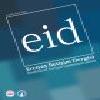Değişen radyoculuk anlayışını yeniden okumak: Kaybedenler kulübü
Ülkemizde radyo dünyasını anlatan flmlerin yoksunluğu, Kaybedenler Kulübü (TolgaÖrnek, 2011) flmine ayrı bir önem atfetmektedir. Sinemanın toplumsal tarihi ve bu tarihiçinde belli dönemleri yorumlama gücüne sahip bir sanat olduğu düşünüldüğünde, Kent FMdeKaybedenler Kulübü programı ve bunu gerçekleştiren iki sunucunun öyküsü incelenmeye değergörülmüştür. Dinleneni izlenir kılan bu flm, salt iki sunucunun gerçekleştirdiği bir radyoprogramından öte, özel radyo yayıncılığı dönemi, program içerikleri, sunucu ve dinleyicilerindeğişen konumları bağlamlarında çözümlenmiştir. Bu çalışmada, sunucu, dinleyici ve programiçeriklerinde değişen radyo yayıncılığı anlayışını ortaya çıkarmak amacıyla, flmde yer alandiyaloglar incelenerek, dinleyici ve sunucular arasındaki etkileşimin ele alınış biçimleri, ogünün toplumsal koşullarının program içeriklerinde ve sunuş biçimlerinde kodlanış biçimleriyeniden okunmuştur.
Reunderstanding the changing role of radio broadcasting: Kaybedenler kulübü
The lack of flms related to radio broadcasting in our country has attributed a specialsignifcance to Kaybedenler Kulübü (Tolga Örnek, 2011). When cinema is considered as aunique art with the power to understand socio-historical background and some certain periodswithin this background, the program namely Kaybedenler Kulübü broadcasted on Kent FM andthe stories of the two presenters of this program are considered to be worthwhile to examine indetail. This flm which makes people listen to the speaker is considered to be more than a programpresented by two presenters, and so it is investigated with regards to the periods of privateradio broadcasting, program content, the changing roles of presenters and audiences. In thisstudy, for the purpose of revealing the changing radio broadcasting with regards to presenters,audiences and program contents, the dialogues captured in the flm were examined and the wayof handling the interaction between audiences and presenters and the way of coding the actualsocial conditions in the program contents and the way of presenting the program are reevaluated.
___
- Ahıska, M. (2005). Radyonun Sihirli Kapısı Garbiyatçılık ve Politik Öznellik, İstanbul: Metis Yayınları.
- Alajoutsijarvi, S. (2011). What Was Said? A Discourse Analysis of a Famous Finnish Radio Journalists Virtuous Monologues. Review of European Studies, Vol. 3, No.2, 22-32.
- Barnard, S. (2000). Studying Radio. London: Arnold.
- Baydar, O. (1999). Muassır Medeniyet Ütopyasından Köşe Dönme Hayaline. O. Baydar, D. Özkan (Ed.). 75 yılda Değişen Yaşam Değişen İnsan Cumhuriyet Modaları (9-13) . İstanbul: Tarih Vakfı Yayınları.
- Bernstein, A. (2002). Representation and the Media. C. Newbold, O. Boyd-Barett ve H. Van den Bluck (ed.), The Media Book. New York: University Press Inc.
- Crisell, A. (1994). Understanding Radio. New York: Routledge.
- Çaydamlı, K., Erdoğan, Ş. (2011). Kaybedenler Kulübü Filmin Öyküsü. (K. Çaydamlı (Ed.). İstanbul: Altıkırkbeş Yayın Lull/Sinema Kitapları-11.
- Ekşioğlu, E (Yapımcı), Ekşioğlu, A (Yönetmen). (2011). FM 1992 (Belgesel). İstanbul: http:// www.eksantrik.com/fm1992.html.
- Griffen-Foley, B. (2004). Midnight-to-Dawn Programs on Australian Commercial Radio. Journal of Radio Studies, Volume 11, No. 2, 239-253.
- Gürbilek, N. (1993). Vitrinde Yaşamak 1980lerin Kültürel İklimi. 2. Basım: İstanbul: İletişim Yayınları.
- Hutchby, I. (1996) . Confrontation Talk: Arguments, Asymmetries, and Power on Talk Radio, New Jersey: Lawrence Erlbaum.
- Keith, M. C. (2009). The Radio Station: Broadcast, Satellite and Internet. Oxford: Focal Press. Kozanoğlu, C. (1995). 80lerden 90lara Türkiye ve Starları. Cilalı İmaj Devri. 8. Baskı. İstanbul: İletişim Yayınları.
- Monaco, J. (2001). Bir Film Nasıl Okunur? Sinema Dili, Tarihi ve Kuramı. Sinema Medya ve Mültimedya Dünyası (E.Yılmaz, Çev.). İstanbul: Oğlak Yayıncılık.
- Örnek, T (Yapımcı), Dörtbudak, M., Dörtbudak, N., Kaplanoğlu, K.Ş (Yapımcı) ve Örnek, T (Yönetmen). (2011). Kaybedenler Kulübü (Film). Türkiye.
- Özbek, M. (1999). Arabesk Kültür: Bir Modernleşme ve Popüler Kültür Örneği. S. Bozdoğan, R. Kasaba (Ed.). Türkiyede Modernleşme ve Ulusal Kimlik. (168-187). İstanbul: Tarih Vakfı Yurt Yayınları.
- Ryan, M., Kellner, D. (1997). Politik Kamera. E. Özsayar (Çev.). İstanbul: Ayrıntı Yayınları.
- Stewart, P. (2006). Essential Radio Skills How to Present and Produce a Radio Show. London: A&C Black Publishers Limited.
- Tolson, A. (2006). Media Talk Spoken Discourse on TV and Radio. Edinburgh: Edinburgh University Press.
- Williams, K. (2003). Understanding Media Theory. New York: Oxford University Press Inc.
- ISSN: 1308-3198
- Yayın Aralığı: 2
- Başlangıç: 2009
- Yayıncı: Erciyes Üniversitesi İletişim Fakültesi
Sayıdaki Diğer Makaleler
DEĞİŞEN RADYOCULUK ANLAYIŞINI YENİDEN OKUMAK: KAYBEDENLER KULÜBÜ
Siyasi parti kapatma davalarının Türk yazılı basınında sunumu: Rp ve Dtp örneği
Sinemada ışık kullanımı ve örnek bir çözümleme
SİYASİ PARTİ KAPATMA DAVALARININ TÜRK YAZILI BASININDA SUNUMU: RP ve DTP ÖRNEĞİ*
